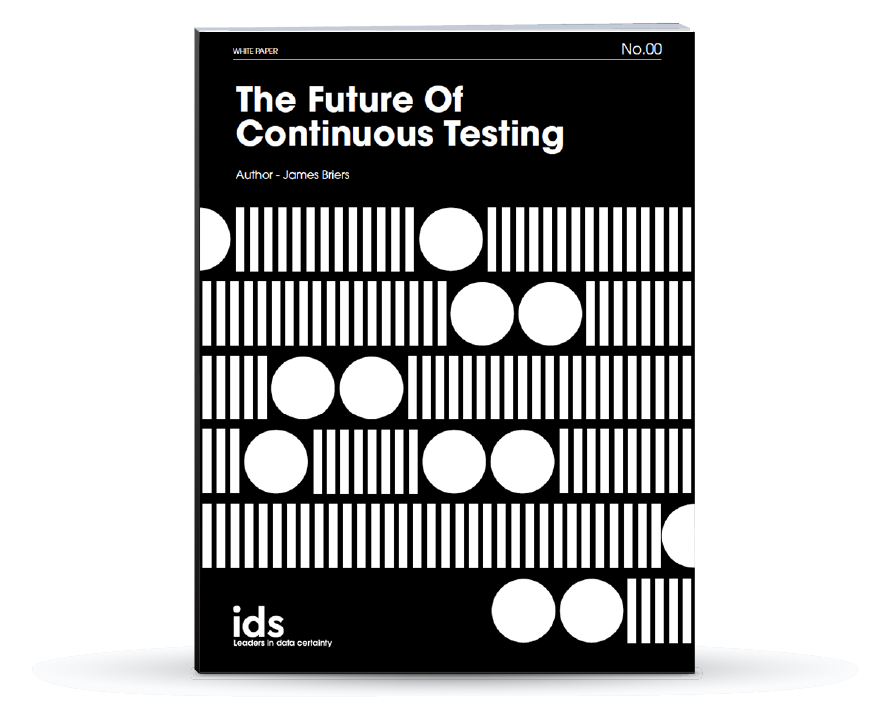Where Are You on the Data Quality Maturity Curve?

If anyone was in any doubt about the importance of data in a decision-making process, hopefully over the past year, with the government’s “Data not Dates” mantra ringing in their ears they have had good cause to change their minds.
During the pandemic we have been constantly reminded of the need to follow the data, not just when it comes to protecting ourselves and others from the dreaded COVID-19 but also in terms of how quickly the country’s economy will take to fully recover.
However, whether or not the governments’ data driven strategy will ultimately result in the best long-term outcomes for us all very much depends on the quality of the data they have available and how well it can be trusted. The same rationale can equally apply to all types of businesses and it is good advice to remember the age-old adage “garbage in- garbage out” (GIGO) when it comes to the critical decisions needed to drive a company forward.
This is particularly important today as more organizations recognise the need to accelerate their digital transformation strategies in order to stay competitive and drive their businesses forward in a rapidly changing global marketplace. However, to be successful, digital transformation requires everyone in the organization to fully buy into the concept of quality data that they can rely on and trust when making critical decisions.
According to a Gartner customer survey the average financial impact of poor data on businesses is $9.7 million per year with nearly a third of customer and prospect data believed to be inaccurate and out of date. In the same survey they found that 91% of the 196 organizations who responded had not yet reached a transformational level of maturity in data and information.
Given these stark statistics, the question businesses should ask is 'how good is my data management system and could it be holding back growth?'
This is not an easy question to answer as it cuts across every area of your business but a good way of starting is to compare yourself against one of the many data maturity models that are now available.
Different models use different terminology but essentially all approach the problem in terms of a data maturity curve that ranges in stages from a basic level to full maturity. Basic being a lack of any overall internal data governance systems with data typically held in departmental silos with full maturity being reached when a company-wide data quality management policy is deployed at the heart of every facet of the business.
For many organizations still at the basic level finding the time and resources to begin the journey to full data maturity can be a daunting task, particularly for smaller businesses. But in the end the cost/benefit analysis comes down heavily on the side of the benefits for all company types and sizes.
Not least is the potential competitive advantage that a clearly defined data management strategy can deliver. Knowing where you are on the data maturity curve enables management to make informed decisions needed to move to the next level and provide trust in the quality of data being used to underpin the day-to-day business operations and the long term success of the company.
Importantly, it enables companies to assess where the gaps are that need to be filled in order to progress to the next stage towards developing a clean and well organised data structure.
As a data-driven company, quality, trusted data becomes a strategic asset that enables better, faster reaction to business changes and challenges based on reliable information and performance analysis.
If all this still seems to be an arduous task and you are struggling to understand all the complexities involved, IDS can help you get started. Beginning at the very basic level through to full maturity, iData's suite of services combined with our specialist training courses will take you step by step through the process of becoming the go-to data quality expert for your business.

Learn How Continuous Testing Can Improve your Business
IDS' Chief Technical Officer, James Briers, sheds light on the solutions to approaching complex data testing projects with mechanical efficiency.


.jpg?width=1200&name=IDS_Website-Image66_(1200x628).jpg)
